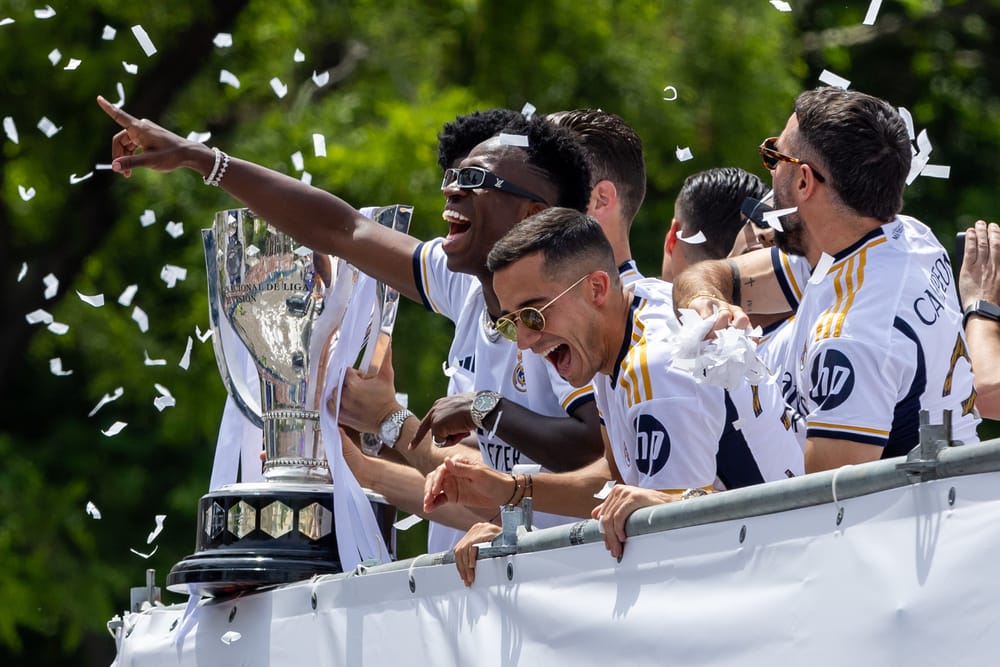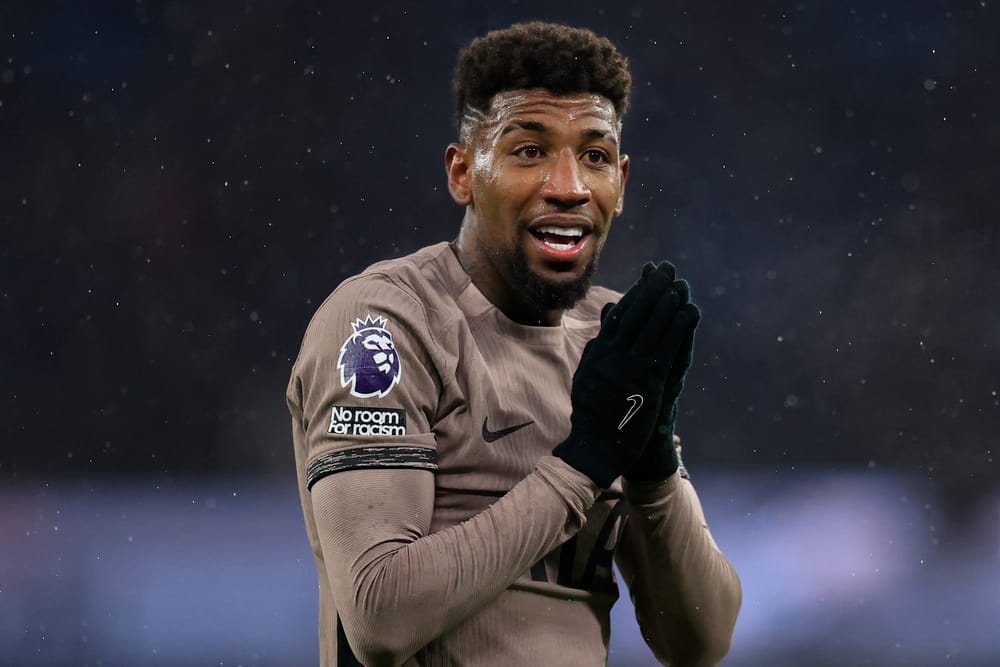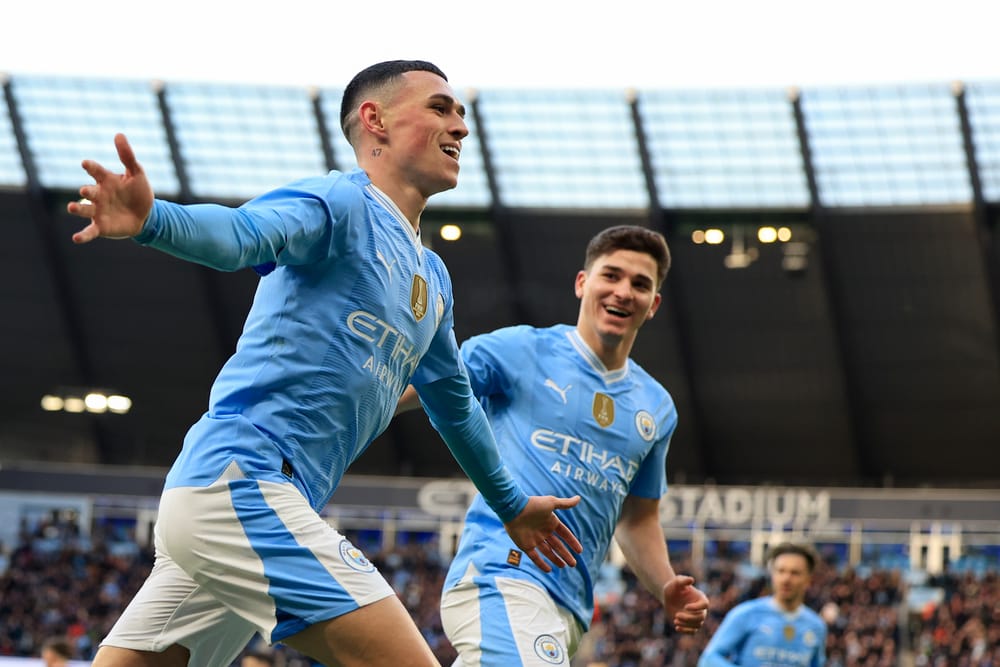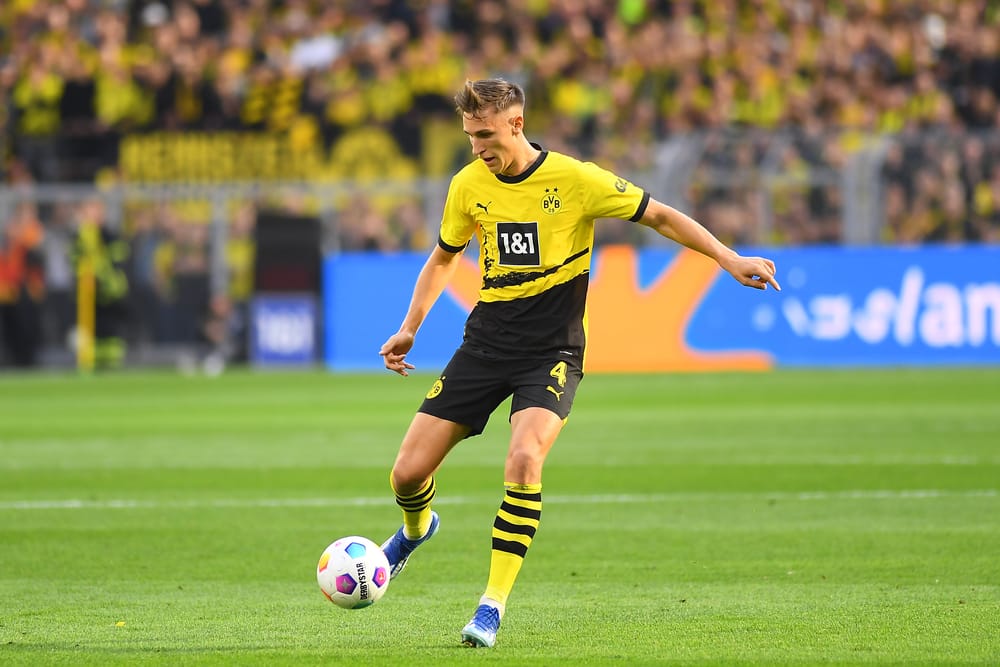In a highly anticipated UEFA Champions League final, Real Madrid clinched the UEFA Champions League title with a decisive 2-0 win over Borussia Dortmund. The match, held at a packed stadium, showcased a blend of tactical brilliance, individual flair, and moments of high drama, living up to the expectations that come with Europe’s premier football competition.
Summary of the Match
The game began with both teams demonstrating a cautious approach, understanding the high stakes of the final. Real Madrid, with their characteristic possession-based play, slowly began to assert control over the proceedings. The first half saw few clear-cut chances, but the tension was palpable. The match’s first significant event came in the 35th minute when Real Madrid’s Vinicius Junior received a yellow card for roughing, setting the tone for a physical encounter. Borussia Dortmund’s Nico Schlotterbeck and Marcel Sabitzer also found themselves in the referee’s book before halftime for unsportsmanlike conduct.
The breakthrough for Real Madrid came in the 74th minute when Dani Carvajal scored a well-placed goal following an assist from Toni Kroos. This goal shifted the momentum firmly in favor of Los Blancos. Borussia Dortmund’s attempts to respond were thwarted, and their frustration was evident as Mats Hummels received a yellow card for tripping in the 79th minute.
Real Madrid sealed their victory in the 83rd minute when Vinicius Junior, despite his earlier booking, found the back of the net with an assist from Jude Bellingham. Dortmund had a glimmer of hope when Niclas Füllkrug’s goal was disallowed for offside after a VAR check in the 87th minute, extinguishing their last chance for a comeback.
Key Players and Plays
Dani Carvajal and Vinicius Junior were the standout performers for Real Madrid, each scoring critical goals that ensured their team’s dominance. Carvajal’s goal was a result of a well-coordinated play between him and Kroos, showcasing Real Madrid’s ability to exploit spaces and execute their game plan efficiently. Vinicius Junior, despite his earlier yellow card, remained composed to score the second goal, effectively putting the game beyond Borussia Dortmund’s reach.
Toni Kroos and Jude Bellingham also played pivotal roles, with Kroos providing the assist for Carvajal’s goal and Bellingham setting up Vinicius. Their vision and passing accuracy were crucial in breaking down Dortmund’s defense.
For Borussia Dortmund, the efforts of Marco Reus and young talent Karim Adeyemi, albeit in vain, highlighted their never-say-die attitude. The substitutions of Reus and Adeyemi brought a brief resurgence of energy, but ultimately, Real Madrid’s defense held firm.
Tactical Analysis
Real Madrid’s tactical approach revolved around maintaining possession and controlling the tempo of the game. With a 57% possession rate and an impressive 91% passing accuracy, they were able to dictate play and create scoring opportunities. Their formation allowed for fluid transitions between defense and attack, with Kroos and Bellingham orchestrating play from the midfield.
Borussia Dortmund, on the other hand, attempted to counter with quick transitions and exploiting spaces behind Real Madrid’s defense. However, their 43% possession and fewer accurate passes (86%) meant they struggled to maintain sustained pressure. Dortmund’s tactical shifts, including multiple substitutions around the 80th minute, aimed to inject fresh energy but were effectively neutralized by Real Madrid’s disciplined defense.
Broader Implications
Real Madrid’s victory in the final not only adds another prestigious Champions League title to their collection but also cements their status as one of Europe’s elite clubs. The win will positively impact their morale and confidence heading into the next season, reinforcing their tactical strategies and squad depth.
For Borussia Dortmund, the defeat, while disappointing, offers valuable lessons and experiences for their relatively younger squad. The team can build on this campaign, focusing on their strengths and addressing areas that need improvement. With the right adjustments, Dortmund can remain a formidable force in European football.
As both teams look ahead to their next fixtures, Real Madrid will aim to carry forward the momentum from this victory. Borussia Dortmund, meanwhile, will seek to regroup and come back stronger, driven by the experience gained from this high-stakes encounter.
In conclusion, the UEFA Champions League final was a showcase of top-tier football, with Real Madrid emerging as deserved champions, thanks to their tactical prowess and individual brilliance. As the dust settles, both teams will reflect on their journeys and prepare for the challenges ahead in the ever-competitive landscape of European football.



